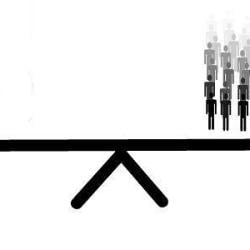From an honor-shame perspective, the “Plan of Salvation” (POS) has a number of problems. By “Plan of Salvation”, I refer to conventional ways of sharing the gospel.

The 5 problems below are extremely oversimplified snippets that I explain and defend more fully in my recent article “Does the Plan of Salvation Make Disciples?: Why Honor and Shame Are Essential for Christian Ministry.”
1. Individualistic
The “Plan of Salvation” (POS) makes too little of the church (i.e. Christian collective identity). As a result, it does not inherently address disciples’ sense of identity. With whom do they identify?
2. Law-Oriented
The POS so emphasizes law that right standards feel abstract or irrelevant. If fact, the “law” is often an instrument of corruption and injustice. At the same time, it doesn’t sufficiently address the critical place of relationships and reputation within honor-shame contexts.
3. Focuses on “What” not “Who”
The POS tends to assume people’s problem is “works righteousness.” The focus is on “what people do” not “who people are.” However, those in honor-shame contexts generally care more about their social identity. Concerns like reputation and one’s relational network are far more practical.
4. Abstract
The POS focuses on what we are saved from and going to heaven after death. Consequently, the POS has an unbalanced emphasis on conversion rather than the disciple’s calling to honor God in life now.
5. Pragmatic
The plan of salvation is prone to under-emphasize the cost of being a Christian, preferring to highlight promises of peace and eternal life. Such presentations superficially satisfy pragmatic desires to get “face.” By failing to address key aspects of life, “converts” are not equipped to honor God as disciples with their lives.
For the sake of introducing the topic, I’ve intentionally stated these in very brief form. The article also unpacks what I mean “honor and shame” as well as some implications for making disciples.
We need to recognize our methods of evangelism have a significant impact on the disciples we make.

















